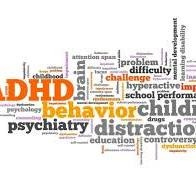Diagnosis in adults
Diagnosing ADHD in adults is more difficult because there's some disagreement about whether the list of symptoms used to diagnose children and teenagers also applies to adults.
In some cases, an adult may be diagnosed with ADHD if they have 5 or more of the symptoms of inattentiveness, or 5 or more of hyperactivity and impulsiveness, listed in diagnostic criteria for children with ADHD.
As part of your assessment, the specialist will ask about your present symptoms. However, under current diagnostic guidelines, a diagnosis of ADHD in adults cannot be confirmed unless your symptoms have been present from childhood.
If you find it difficult to remember whether you had problems as a child, your specialist may wish to see your old school records, or talk to your parents, teachers or anyone else who knew you well when you were a child.
For an adult to be diagnosed with ADHD, their symptoms should also have a moderate effect on different areas of their life, such as:
-
underachieving at work or in education
-
driving dangerously
-
difficulty making or keeping friends
-
difficulty in relationships with partners
Treatment for attention deficit hyperactivity disorder (ADHD) can help relieve the symptoms and make the condition much less of a problem in day-to-day life.
ADHD can be treated using medicine or therapy, but a combination of both is often best.
Treatment is usually arranged by a specialist, such as a paediatrician or psychiatrist, although the condition may be monitored by a GP.
Treatment
There are 5 types of medicines licensed for the treatment of ADHD:
-
methylphenidate
-
lisdexamfetamine
-
dexamfetamine
-
atomoxetine
-
guanfacine
These medicines are not a permanent cure for ADHD but may help someone with the condition concentrate better, be less impulsive, feel calmer, and learn and practise new skills.
For more information book a consultation with an expert





